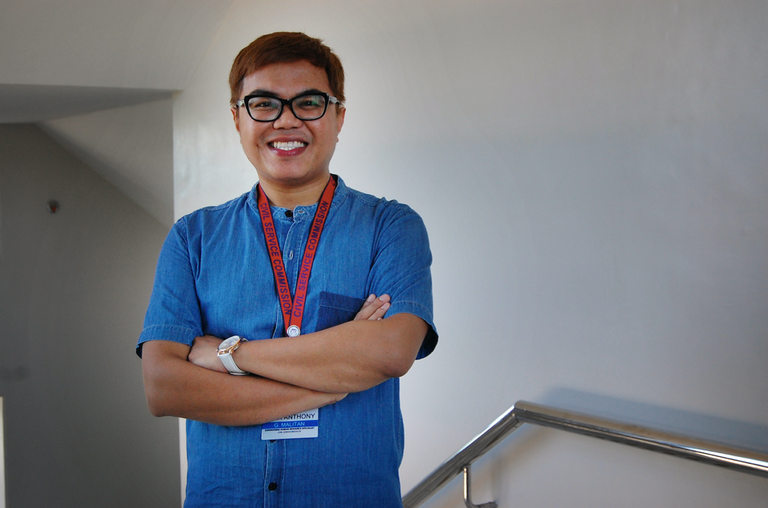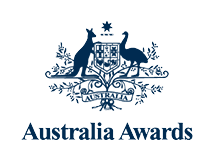Enhancing Governance through a Values Program
History has shown that the best civil servants are those who have the people’s interest at heart. Such civil servants are what the Civil Service Institute (CSI) aims to develop, said Mark Malitan. As the CSI’s Supervising Human Resource Specialist and a valuable team member since 2011, Mark has imbibed the institute’s slogan: Shaping the Servant-Hero toward Public Service Excellence.

The CSI, which is the research and training arm of the Civil Service Commission (CSC), has been rolling out Human Resource and Organisational Development seminars and workshops since 2013. Among these is the Public Service Values Program (PSVP), which aims to provide government agencies a better understanding of public service values, use them in decision-making, as well as to improve individual and organisational performance.
“I believe that values can really solve the problems that we have in society,” said Mark. “We need to know our foundational values: patriotism, integrity, excellence, and spirituality. This is now the thrust of the Civil Service—promoting the public service values of a civil servant.”
Learning first-hand
Mark’s advocacy for public service values led him to develop and implement an evaluation tool for the PSVP as his re-entry action plan (REAP) for Australia Awards. It is based on the Kirkpatrick model, which aids trainers and facilitators in understanding the effectiveness and impact of the training they give based on four levels: Reaction, Learning, Behaviour and Results. Mark’s evaluation tool focuses on the change in behaviour of PSVP participants.
Developing and implementing an evaluation tool for behavioural change meant looking at the manifestation of values in participants or measuring how they were able to apply what they learned during the training when they are back in their offices.
“I felt it was time to go beyond the types of evaluation that we were using, which focused on measuring the participants’ satisfaction of and acquired knowledge from the values program,” he said.
His REAP was his primary motivation in choosing his program and university. At Griffith University in Brisbane, Queensland, Mark studied Training and Development. The curriculum included a course called “Vocational Assessment,” which was perfect for his needs. “I wanted to study abroad and understand first-hand what the best practices in the field of Training and Development are,” he explained. “It was important for me to be embedded in a culture that applies these best practices—more than just theoretical or conceptual knowledge.”
Mark’s experience in Australia both fuelled and satisfied his thirst to learn and discover new things. He appreciated the open environment for sharing which allowed him to see how Training and Development was practiced in other countries. Aside from lectures and presentations, discussions with other students taught him the systems, practices, and tools of a Training and Development practitioner. This helped him retool and develop competency in the field. “I learned the practical application, enriched with valuable insights from classmates all over the world,” he said.
Going back to school in a foreign country also taught him discipline – discipline in submitting papers on time, in prioritising things, in handling finances, and even in small things such as following bus schedules. This made him realise how crucial it was for public servants to have discipline and commitment in their work.
Among his many takeaways, he has brought into CSI the work ethic and standards he learned in Australia. “We have to do something, I now say, ‘Let’s see if we can apply and contextualise these standards here,’ or ‘Maybe we can try it this way,’” he explained. “You can raise the bar higher because you’ve been able to benchmark in a country that has a lot of these best practices,” he added.
When he returned to the Philippines, he became even more of an asset to the CSI. His mentor and then-Executive Director of the CSI, Ms. Agnes Padilla explained, “He now has a global perspective of his work and a broad network of practitioners in the field. I know he will go far”.
Contributing to transformation
According to Mark, the skills and competencies he gained while in Australia contributed to achieving the transformation he envisioned for the public sector.
Mark got management approval for his REAP. He conducted focus group discussions with regional directors and PSVP focal persons in the rank and file, from CSC offices in Luzon, Visayas, and Mindanao, and from the CSC Central Office.
Previously, there was no assessment of the impact of the PSVP. “This was the start,” Mark said. “We were able to get positive responses to the program,” he added. He cited the manifestation of positive values and the changes in the participants’ behaviour as a confirmation of excellence and integrity—two of the values the PSVP aims to develop.
Through the evaluation tool for evaluation change which Mark developed, CSI saw the need to develop CSC’s Core Values Program guidelines, which would further strengthen the measurement of values. “This had already been discussed, but the evaluation on behavioural change was the trigger,” Mark said.
As a values advocate, he’s happy to talk about the PSVP and even facilitate trainings about it. His largest training to date was for a group of 500 participants, which he co-facilitated. “I have faith in the program,” Mark said. “I really believe that if public servants know their values, all problems in our government will be solved—corruption and all.”
As a result of his Australian education, Mark said he now understands Training and Development better—together with its possibilities. “I have come to love the field even more,” he said. “I felt engaged because I learned a lot of best practices, which will help me develop my craft as a Learning and Development practitioner. Aside from this, I met a lot of other practitioners and learned new tools. I really see myself loving this field for many years to come, because of my experience in Australia.”

